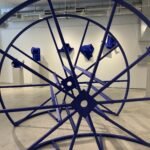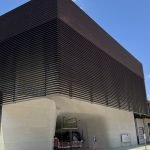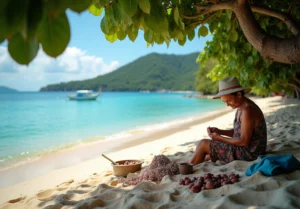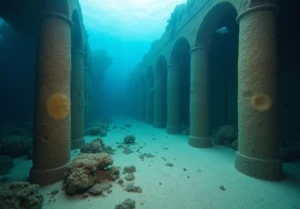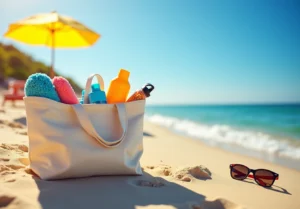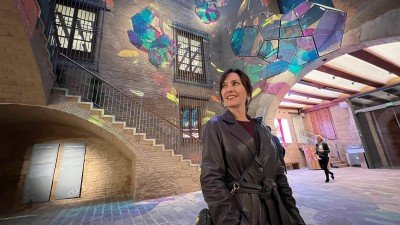Ever wondered ‘Why is the Blue Dog Blue?’ This question, not just a title of George Rodrigue’s famous book, but also a gateway into the mesmerizing world of his Blue Dog paintings, has intrigued art enthusiasts and cultural historians alike. These paintings, a blend of haunting beauty and hypnotic charm, have become a symbol of Louisiana’s rich heritage and Rodrigue’s artistic genius.
Table of Contents
Why is the Blue Dog Blue? Origin
As a child growing up in South Louisiana, I was mesmerized by the Blue Dog paintings of George Rodrigue. Haunting and hypnotic, the Blue Dog appeared in various Louisiana landscapes as if bearing witness to our heritage, history, and culture. Yellow eyes and a cobalt blue fur coat, the Blue Dog sat perched in the same position, at eye level, not to be looked down upon but instead faced front on.

Over the years, I followed the work of George Rodrigue as his Blue Dog paintings gained international fame and the Blue Dog became a Louisiana icon.

I never met the beloved Louisiana painter. He died in 2013 of cancer, and I’ve never owned a Blue Dog painting (although I’ve wanted one for years, let’s just say I’m still saving up for the purchase).

You can imagine my excitement when I had the opportunity to meet and tour George’s art with his widow, Wendy Rodrigue, who travels the nation, bringing his Blue Dog paintings to school children to inspire future artists and foster art literacy.

I met up with Wendy at the West Baton Rouge Museum, which was hosting a special exhibition of George Rodrigue’s work.

Coinciding with the 10th anniversary of Rodrigue’s death, this exhibit is the first of its kind. It traces 45 years of the river in Rodrigue’s paintings, exploring the unique ways he used the river as a reference to his Cajun heritage and ultimately as a metaphor for life’s journey.
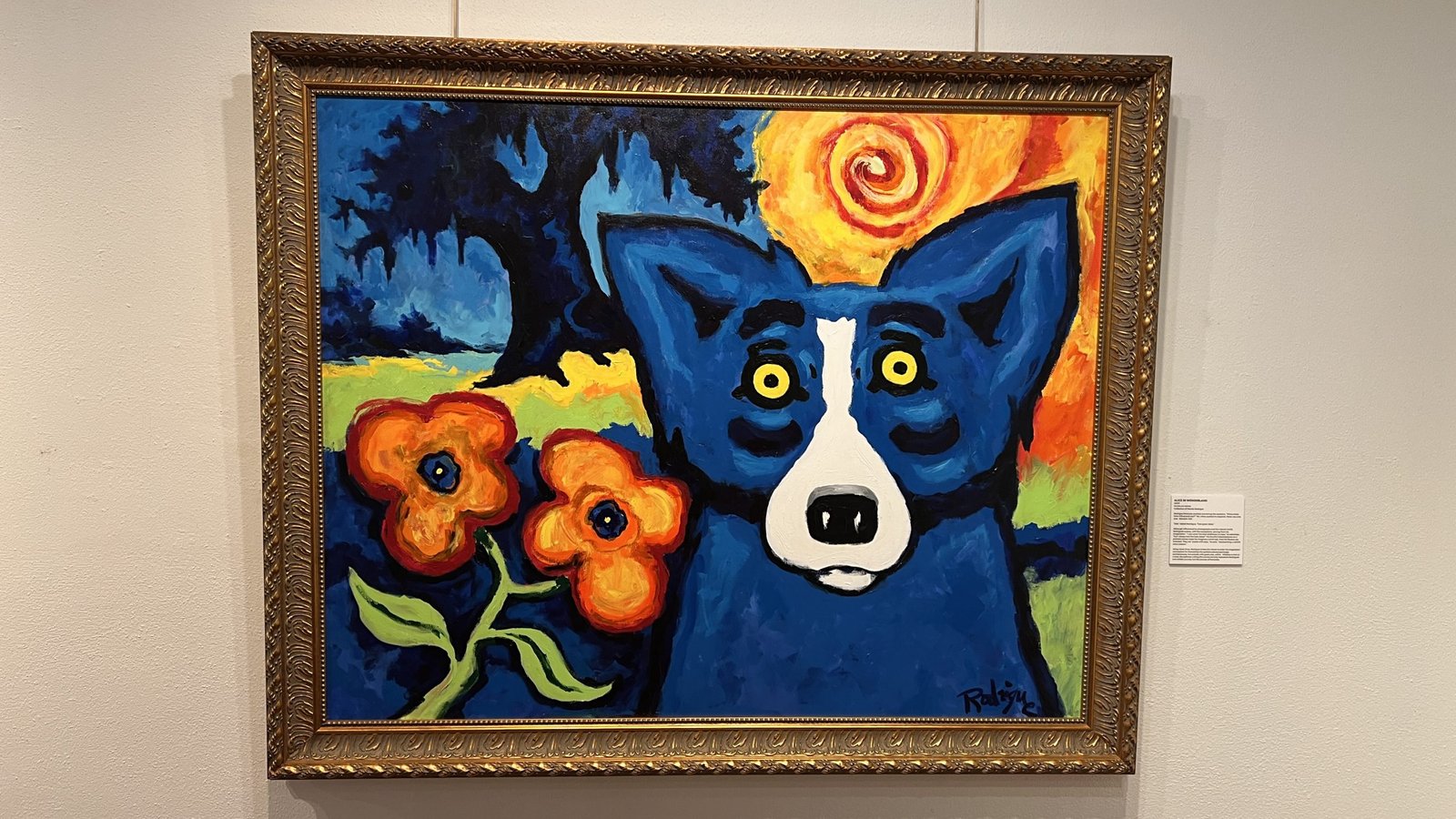
The exhibition, organized by the Life & Legacy Foundation, includes 35 original artworks, including paintings, pastels, and sculptures from the private collection of Wendy Rodrigue, the George Godfrey Rodrigue, Jr. Family Trust, and selected works borrowed from collectors.

“George Rodrigue, one of America’s most important painters, one of Louisiana’s greatest treasures, had never painted a picture by the time he reached the third grade,” Wendy says.

George Rodrigue’s Artistic Journey From Cajun Roots to the Blue Dog Phenomenon
George Rodrigue was born in New Iberia, Louisiana, in 1944. He was diagnosed with polio at the age of eight and bedridden. To keep him entertained, his mother bought her convalescing son a paint-by-numbers kit from the local store, George’s first introduction to painting. George continued to paint throughout his childhood and attended the University of Southwest Louisiana (now known as the University of Louisiana Lafayette) but left before earning his degree.

“He eventually got bored because he wanted formal art instruction. He heard about this school in California called the Art Center College of Design. He was accepted and took a train from New Iberia to Los Angeles in 1966. On his first day of class, he learned that the Art Center was a graduate school program. At that time, George was the only student they had ever accepted who did not have a degree,” says Wendy.

In the late 1960s, Rodrigue returned to Lafayette and dedicated himself to painting as a career. George was painting oak trees and landscapes by the time of his first solo art show, held at his alma mater in 1968. He developed a signature style that cut off the treetops in his landscapes.

“He started out painting things from his Cajun heritage. He wanted to show the world Louisiana’s distinct landscape. George changed American landscape painting by cutting the tree off at the top and looking up at the sky through the oak trees. He did it throughout his life, and by doing that, he’s invited us into his Louisiana, into his world underneath that tree,” Wendy says.

The Artistic Decision Behind the Color
George painted his first Blue Dog in 1984 after years of painting Cajun folklore and Louisiana landscapes. I asked Wendy if George had an “aha” moment when he decided to start painting the Blue Dog, which, surprisingly, didn’t start blue. It was grey with red eyes. “The color Blue was an artistic decision to show how the night sky would cast shadows on its fur. George changed the dog’s eyes to yellow and painted them with thick, goopy oil. The Blue Dog paintings were intense, with no landscape.

George got the idea for the Blue Dog from an early Cajun legend, Rougarou, a boogeyman-type character that resembled a crazy werewolf. As a child, his mom used to tell Geroge stories about the Rougarou. “When George began painting the Blue Dog, it was his first painting in 25 years that did not include a Louisiana landscape. It was a real aha moment because he knew he had painted something exciting for him.”

When George introduced the Blue Dog, much of the art world didn’t get it.
“His friends, family, and the critics hated it. His collectors hated the Blue Dog because they wanted George’s Cajun-inspired paintings that they knew.”

Over time, the Blue Dog gained international fame, showing up on canvas, print, objects, Neiman Marcus catalog covers, and even a custom-painted car.

Rodrigue also painted a commission by the White House in 1996

Before we finished our tour, I had to ask a question that had perplexed me for years. I wanted to know why The Blue Dog appears red in some paintings. “George explores the dark side with The Red Dog. It’s the alter ego of the Blue Dog. Over time, the Red Dog came to signify other things, such as love,” Wendy says.

George Rodrigue’s Legacy and the Continuing Fascination with the Blue Dog
2023 marks a decade since the Blue Dog Painter’s death. Today, Wendy is the torchbearer of George Rodrigue’s cultural legacy. She visits schoolchildren nationwide, bringing her late husband’s paintings for children to experience up close. “I want to connect school children nationwide with the end of Rodrigue’s artistic path and the beginning of theirs.”

To date, Wendy has traveled to 137 schools, visiting more than 600 classes and 60,000 kids. To learn more about Wendy’s work with schoolchildren, check out the Life & Legacy Foundation’s website: www.legacyarttour.org
Explore More Fascinating Stories of Louisiana’s Rich Heritage, History, and Culture
Louisiana Sports Hall of Fame & Northwest Louisiana History Museum, a must see for sports fans & culture seekers










